Saturday, December 24, 2011
Top 10 Films of 2011
To start off on a more personal note, a very merry Christmas Eve to you all and general well wishes for the rest of the holidays this cold season. And I apologize for the past few missed opportunities of posting film reviews or awards predictions, but alas this semester's finals were particularly demanding. That said, I can set off a series of list-posts with the one people tend to care about the most and that is the very best films of this year. My War Horse review did well to kind of summarize the trends in this year in film, which I think was ultimately strong if nothing than in the strongest of what it offered. Particular trends indicate the strength of British cinema this year with a full four offerings from the U.K., several films deeply tied to memory (if not suiting the trend of "nostalgia" this year), and childhood.
Honorable mentions go to films that may have made my list this year had I not seen them in 2010. Certified Copy, Poetry, and Uncle Boonmee Who Can Recall His Past Lives in particular.
10. Senna (Asif Kapadia, U.K.)
The life of Formula One racer Ayrton Senna is reconstructed with brilliantly edited footage of the racer's career reminiscent to a much shorter entry from my list last year, The Autobiography of Nicolae Ceaușescu, but much shorter and with occasional English narration. Whether you're already aware of the fate of Mr. Senna or if, like me, you had zero interest in formula one or any entry of the racing sport genre, the film plays out with compellingly realized passion and reverence for its subject that is lovely to watch.
9. Tyrannosaur (Paddy Considine, U.K.)
The first entry of the year I saw of the promise of British cinema this year, Tyrannosaur is an often hard to watch character study that will hit you in the gut on the strength of performances like Peter Mullan's and Olivia Colman's as much as it is the study of the very community that Considine grew up in in all of its bleak landscapes and air as tough as the residents' skins. Colman's delicate Hannah has been receiving the bulk of awards' attention for this film as her gentility and faithfulness from growing up in upper class life veils the domestic horrors she faces regularly until the tension erupts near the end to what remains the best performed scene of this very year. It's Mullan's Joseph, however, whose rougher grumbly exterior shields his sensitively internalized past experiences of love and loss through short-tempered outbursts that I think was perhaps the more difficult task and offered some more deeply embedded shades of characterization.
8. The Girl With the Dragon Tattoo (David Fincher, U.S.)
David Fincher has offered his take on the Swedish literary phenomenon with the startling ease of his past crime procedural films, tension always amped up well passed 10 and a wholly more cinematic and compelling product than the original Swedish films. From the opening credits the audience is prepared for some ruthless Fincherian style and will break every audiences' most squeamish sensitivities that will start you squirming in your seats, to shivering in your seats, to completely recoiling and shaking at the slightest gestures that may not mean a damn thing. But with the atmosphere Fincher presents, you'd never know it. Rooney Mara sinks every teeth possible into the potential of her character's strength and kicks some serious ass. Her eyes like the very film itself seethe with a quiet fireball of energy even in her most quiet moments, which only makes her crowdpleasing moments of outbursts that much more thrilling and exhilarating to watch play out.
7. Drive (Nicolas Winding Refn, U.S.)
Perhaps this year's most truly nostalgic "nostalgia piece" (and not just yearning for a time you never even lived in) is a style in exercise always underpinned by a very contemporary and relevant sense of dark dread, like a more mechanical No Country for Old Men. A killer techno soundtrack offers a sense of modern poetry in the slowly simmering scenes featuring a slowly simmering but quietly effective Ryan Gosling, whose performance itself is like a fast car going forward with cool smoothness until the slightest changes can leave the most jarring impacts. But Refn allows the final climactic moments of released tension play out quietly, but never in a boring way. The scenes are violent, but never gratuitous. They're shot slickly but never glamorize the blood and gore onscreen as is a problem with many mainstream American action films.
6. This Is Not a Film (Jafar Panahi and Mojbata Mirtamasb, Iran)
As of yet unreleased in the U.S., Jafar Panahi continues to push the level of cinematic possibility while bound by house arrest shortly before his prison sentencing in Iran last year. The results of how much he's able to express politically as well as humanistically while also lamenting on his potentially finished film career can be tragic, hilarious, thoughtful or spellbinding at any given moment. The self-reflexivity of trying to make a film is a common theme in this new Iranian cinema of which he's a major figure and it is, of course, adapted for this film with utter brilliance in defiance of art-detesting authoritarian forces that speaks to deep moralistic questions for audiences anywhere. A simple yet astonishing feat in filmmaking, and the most important film in a long time.
5. Weekend (Andrew Haigh, U.K.)
Going on about his art project in the film, the character in the film Glen jokes that only gays will visit to get a view of some cock and straights won't bother since it has nothing to do with their world. With subtle snarks of self-references ("so is this our Notting Hill moment?") that brings attention to how it subverts and spins on its head the conventions of modern cinematic romances or queer films, Weekend is a tenderly realized romance in a standard English industrial town that operates in quiet whispers and hushed moments. Tales of both characters pasts are sewn in carefully, and build on enough development for an audience to glue their interests and attention to these two characters and their relationship. Tom Cullen's performance as Russ is among the most natural delivered all year, with deeply embedded strings of repression and self-consciousness foiled by Chris New as Glen, arguably given the tougher task by building a lot of what we know about his character through reactions. Both performances are of equal keel, though, as they both achieve the task of figuring each other out and breaking them of their respective insecurities and fears and regrets all common in the modern Western gay experience. Seminal moment though it seems for gay cinema, the story is (at the risk of sounding gay-cliché) all too universal. Anyone should be able to relate to falling in love at the worst time, and the ending works like a punch to the gut.
4. We Need To Talk About Kevin (Lynne Ramsay, U.K.)
Scottish visual auteur Lynne Ramsay returns triumphantly to the cinematic world with a cerebral horror story into the mind of one Eva Khatchadourian, reconstructing her past in fragmented blood-splashed regrets and fears and potential explanations for what her life has become. Played by Tilda Swinton, every ounce of pain and retroactive remorse pulsates to every bone in her body, communicating shades of haunting and confusion and fear with single facial expressions that outdoes most (if not all) performers in film this year with ease. The ultimate unreliable narrator of this character study, we see the landscape of her traumatizing experiences much like Travis Bickle sees the bleak New York City streets in Taxi Driver or how Stephen Myers' glossy but upbeat view of politics is ultimately tainted to something more menacing in The Ides of March. We see the disgust with which she perceives pregnant women, we see the creepy stillness in suburban life she feels trapped by, and most troubling of all we see the very evil and darkness she senses out of the very child she herself bore life to (if not the singling out of retrospective evidence she was searching for later on). Kevin, of course, grows up to massacre students in his high school in as grisly a manner as you can imagine, and the question then becomes whether he was truly born as evil as Eva had suspected or if he ended up that way as a result of how she saw him when raising him. The ultimate subjective exercise demands deep interaction with the images put forth to the audiences and has led many an American critic to easily dismiss the film, very unfortunately I think, as something "pretentious" as can easily be applied to a film of any visual flourish. Fact remains that Lynne Ramsay and co-writer Rory Kinnear have pulled apart all literary elements and structures of the original novel into a truly brilliant, creepy, and thoughtful piece of oedipal cinema.
3. Bal ('Honey') (Semih Kaplanoğlu, Turkey)
Winner of the 2009 Golden Bear prize from the Berlin Film Festival, U.S. audiences only got to see this film at the start of the year and when it was what I considered the first 2011 film to have seen I had immediately realized I had laid my eyes upon a quiet masterpiece. Deep in the lush Turkish countryside, orchestrated by the sounds of insects or wind-kissed leaves or approaching footprints in the dirt, we meditatively penetrate the mind of a young boy named Yusuf who sees his world of nature and family and school with a heartbreaking childlike innocence that is inevitably shattered by the end of the film. The childlike gaze in cinema is a tough code to crack, but those that managed to — Pather Panchali, The Color of Paradise, The Spirit of the Beehive, Kes — are among the finest films ever made. It's hard to describe this meditative piece of impressionism in a way that can do it any justice, but its so visually descriptive that you can smell each flower in the fields and taste each drop of soup that Yusuf's ethereal mother feeds to him with the help of some of the finest cinematography ever dedicated to the screen. We see a young boy striving for his father's approval, naturally affectionate to his mother, sensitive to his speech impediment in front of his class but so yearns for the admiration of his classmates the way that he does for them as he mouths the words they read from their books' pages in ambition for their confidence and aural clarity. But like the film, not much talking is to be had. All of it is said through simple perception.
2. The Tree of Life (Terrence Malick, U.S.)
Similar to Bal in its childlike view growing up in 50s Texas, much like its elusive filmmaker himself, but wider in scope and bigger in impact. The Tree of Life is master director Terrence Malick's magnum opus and the cinematic event of the new millennium delivered on its promise with a Cannes Palme D'Or and awards promise for this season. The most affecting moments of the film are the emotional brushstrokes in the more intimate tale of childhood, approaching repressive 50s family structures with Biblical grace — all bottled up with the tense promise of future tragedy to boot in similar retrospect as We Need To Talk About Kevin, set to tender classical piano music. Juxtaposed to the small-scale family portrait is the much larger implications of the universe's creation from the big bang to the evolution of life on Earth from a God-like point of view that confronts the audience with the dwarfing of importance they see in their own family life to the larger scheme of universality and everything that happens. What Malick's messages include is hard to say, I simply try to interpret the film in my emotional reactions to it which are far too diverse and varied in impact for me not to consider this an instant classic, and what I can only assume is what Terrence Malick's been aiming for with his distinct visual style all these years.
1. A Separation (Asghar Farhadi, Iran)
Asghar Farhadi has managed the near impossible task of crafting the pinnacle of my very favorite world cinematic stage right now. Nearly flawless in every aspect of its construction, from the intricately crafted screenplay (STAKES STAKES STAKES!) to the almost bizarrely consistent top of the line performances across the board to subtle camerawork that established spatial relations between each character in crucial ways to the overall product, the result is a deeply felt humanistic piece with deep implications of social critique, gender relations, hegemonic religiosity, class struggles, justice systems and basic questions of moral and personal truthful ambiguity of right and wrong that can make the slightest statement or action make you as squeamish as the rapiest torture sequences in Dragon Tattoo. The original title of the film translates as The Separation of Nader and Simin, as the story is framed through the divorce of the two central characters, but still operates as thoughtful synecdoche considering how wide ranging the story progresses from that point as the very film provides a microcosm for issues of middle class Iranian society. The upper-middle class marriage of Nader and Simin indeed falls apart in the opening sequence as Simin wishes for a less oppressive regime and lifestyle for her and their daughter, Fermeh, while Nader refuses as he has an Alzheimers-stricken father to care for and their daughter is not willing to leave him. The intertwined story unravels from there as every side to every story is both justified and at fault for the explosion of tension that then proceeds while they enter into various legal battles, not the least of which is the divorce case at the center, with full and confident interpretations of their own truth that all falter in logical scrutiny. At the heartbreaking center is daughter Fermeh, played by the director's own daughter Sarina Farhadi, who slowly loses her innocence and the idealized views with which she sees the truth for the sake of her own family but ultimately has to choose a side. The film should be required viewing when it opens in select cities later this weekend and will surely be studied in film schools well into the future. It is a full-fledged masterpiece.
On DVD: Bal (Honey), The Tree of Life
Available for instant Netflix viewing: Poetry, Senna, Weekend
In theaters now: The Girl With the Dragon Tattoo
Soon to be in theaters: A Separation, This Is Not A Film, We Need To Talk About Kevin
11-20:
11. The Help
12. Martha Marcy May Marlene
13. Beginners
14. Shame
15. Bridesmaids
16. The Muppets
17. Harry Potter and the Deathly Hallows, Pt. II
18. War Horse
19. The Artist
20. 50/50
Subscribe to:
Post Comments (Atom)
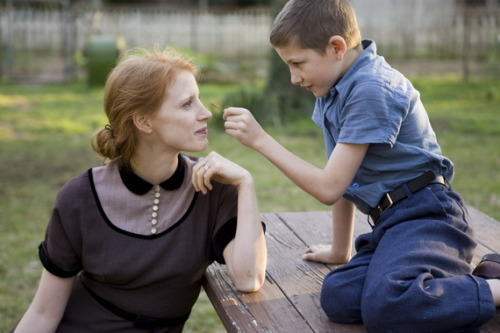
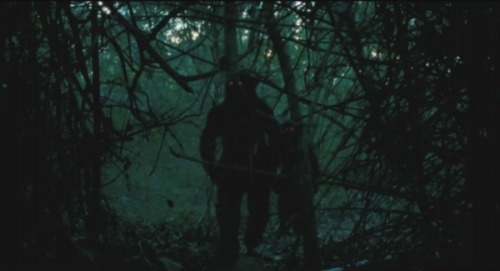


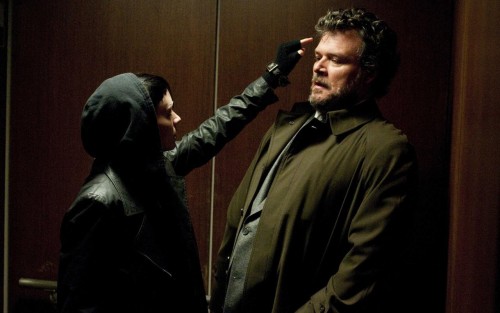
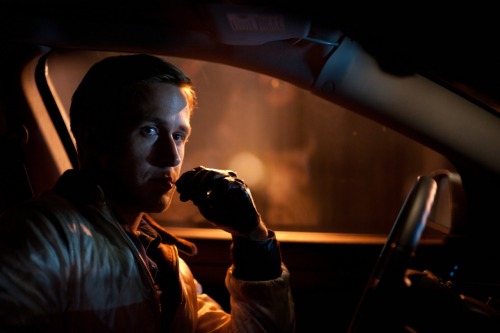
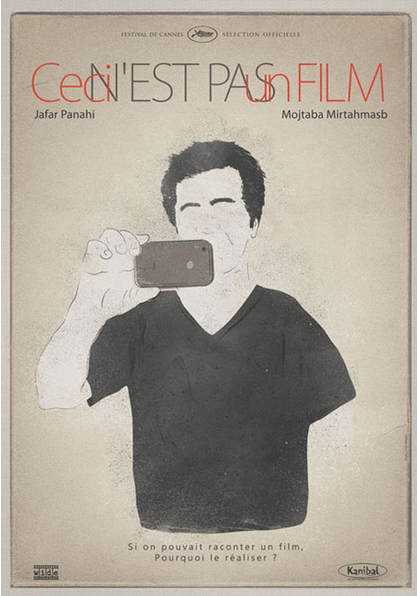


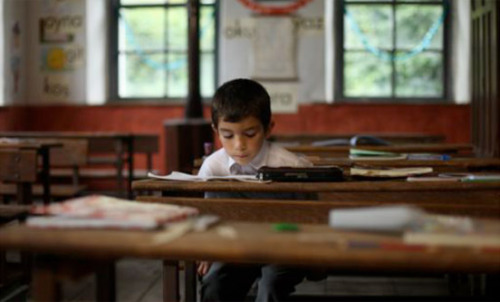
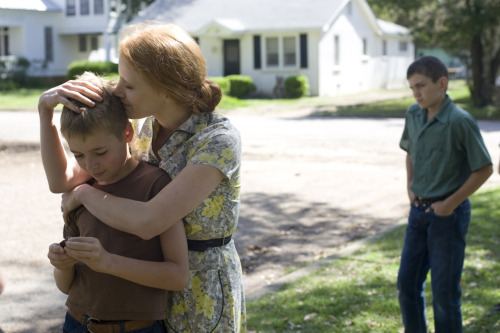

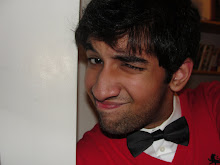
Can't wait to see A SEPARATION. Hope it gets released in Boston soon. And I have a screener of WE NEED TO TALK ABOUT KEVIN sitting right next to me, so I'll see that very soon.
ReplyDeleteI just like "A tree of life" its a wonderful movie.I want to watch it again and again.It's a wonderful top 10 list.
ReplyDelete